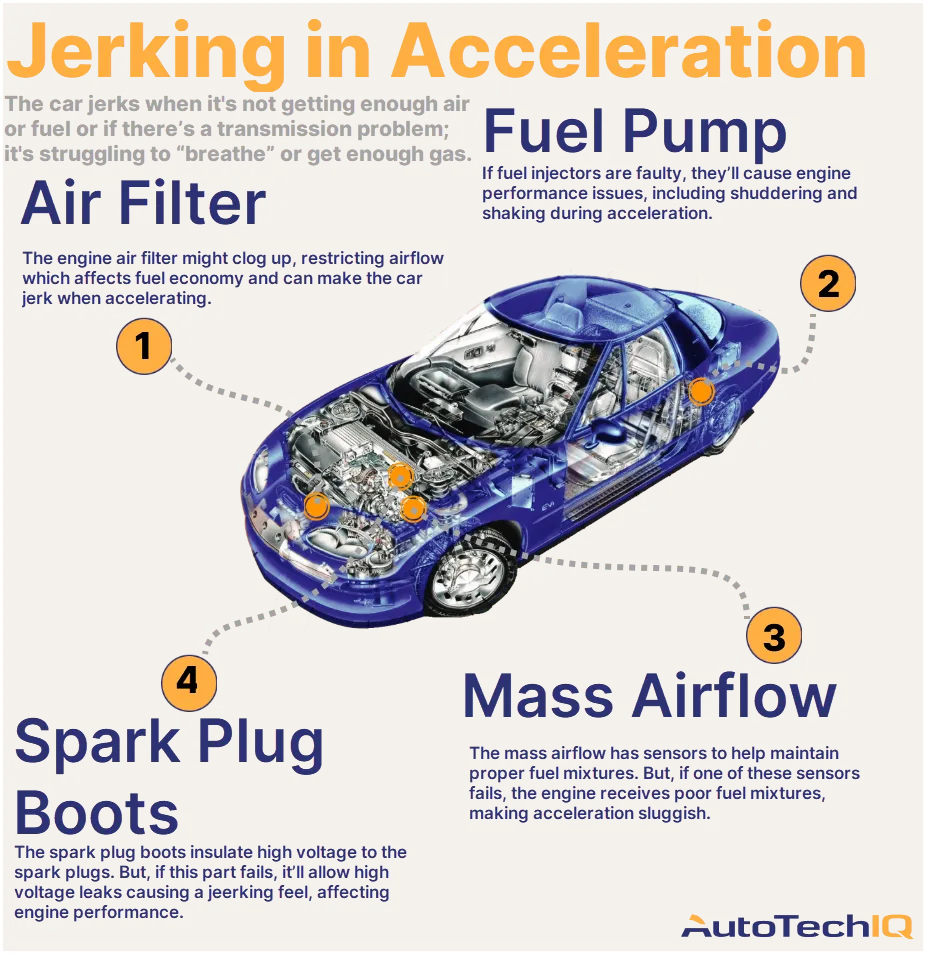Decoding the Jerk: Diagnosing “Car Bucking While Accelerating” Even Without Transmission Codes
Understanding the “Bucking” Phenomenon
Experiencing your car bucking while accelerating can be unsettling, especially when the check engine light remains stubbornly off․ This “bucking” or “jerking” sensation typically indicates an interruption in the smooth delivery of power from the engine to the wheels․ It’s a frustrating issue, but understanding the potential causes is the first step towards a solution․ Don’t immediately assume it’s the transmission, even though that’s a common concern․
The absence of diagnostic trouble codes (DTCs) doesn’t necessarily mean there’s nothing wrong․ Intermittent issues or problems that haven’t reached a specific threshold for triggering a code can still cause noticeable symptoms․ We’ll explore several possibilities beyond just the transmission․
Fuel Delivery System Suspects
A common culprit behind car bucking during acceleration is the fuel delivery system․ Insufficient or inconsistent fuel supply can lead to engine misfires and the jerking sensation you’re experiencing․
- Fuel Filter: A clogged fuel filter restricts fuel flow․ Replace it according to your vehicle’s maintenance schedule․
- Fuel Pump: A failing fuel pump may not provide adequate fuel pressure, especially under load․
- Fuel Injectors: Dirty or malfunctioning fuel injectors can disrupt the fuel spray pattern, leading to incomplete combustion․ Consider a fuel injector cleaning service․
Ignition System Considerations
The ignition system plays a crucial role in igniting the air-fuel mixture in the cylinders․ Problems here can definitely cause bucking․
Key Ignition Components to Inspect:
- Spark Plugs: Worn or fouled spark plugs can misfire, especially under acceleration․
- Ignition Coils: Weak or failing ignition coils can prevent the spark plugs from firing correctly․
- Spark Plug Wires: (If applicable) Damaged or deteriorated spark plug wires can leak voltage, leading to misfires․
A simple visual inspection of these components can often reveal obvious signs of wear or damage․ A multimeter can be used to test the resistance of the spark plug wires and the output of the ignition coils․
Air Intake and Sensor Issues
The engine needs the correct air-fuel mixture to run smoothly․ Problems with the air intake or related sensors can disrupt this balance․
Consider these potential issues:
- Mass Airflow (MAF) Sensor: A dirty or faulty MAF sensor can provide inaccurate readings to the engine control unit (ECU), leading to incorrect fuel delivery․
- Throttle Position Sensor (TPS): A malfunctioning TPS can cause erratic throttle response and bucking․
- Vacuum Leaks: Vacuum leaks can disrupt the air-fuel mixture, causing rough running and bucking․
Smoke testing is a great way to find vacuum leaks․ It involves introducing smoke into the intake system and looking for where it escapes․
Transmission Possibilities (Even Without Codes)
While you mentioned no transmission codes, it’s still worth considering, especially if the bucking feels like a distinct shift issue․ Sometimes, internal transmission problems don’t immediately trigger a code․
Here’s what to consider:
- Torque Converter: A failing torque converter can cause shuddering or bucking, particularly at lower speeds․
- Slipping Clutch Packs: Internal wear in the transmission can lead to slipping clutch packs, resulting in jerky acceleration․
- Low Transmission Fluid: Check your transmission fluid level and condition․ Low or contaminated fluid can cause shifting problems․
Even if the fluid level is correct, consider a transmission fluid flush if it’s been a while since the last service․ Old fluid can lose its lubricating properties․
FAQ: Car Bucking While Accelerating
Q: Why is my car bucking when I accelerate, but there’s no check engine light?
A: The issue might be intermittent, or the problem hasn’t reached the threshold to trigger a diagnostic code․ Many of the issues described above can cause bucking without immediately setting off the check engine light;
Q: Can a bad O2 sensor cause bucking?
A: Yes, a faulty oxygen (O2) sensor can provide incorrect feedback to the ECU, leading to an improper air-fuel mixture and potentially causing bucking․
Q: How can I diagnose the problem myself?
A: Start with a visual inspection of the spark plugs, wires, and air filter․ Check the fuel pressure and monitor sensor readings with a scan tool․ If you’re not comfortable working on your car, it’s best to consult a qualified mechanic․
Q: Is it safe to drive a car that’s bucking?
A: It depends on the severity of the bucking․ If it’s mild and infrequent, you might be able to drive it to a mechanic․ However, if it’s severe or accompanied by other symptoms, it’s best to have it towed to avoid further damage․






